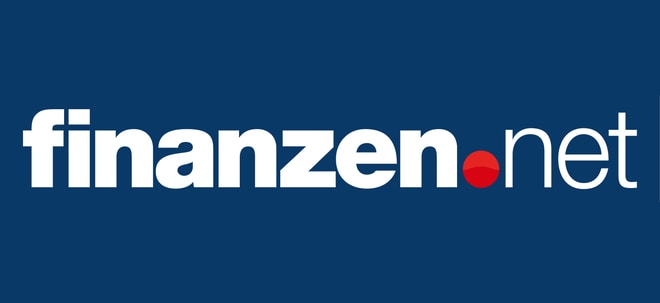Glean - Founders, Business Model, Funding & Competitors
Glean is an AI-powered enterprise search and knowledge discovery platform that is transforming how employees find information at work. Founded in 2019 by a team of former Google engineers – and backed by Silicon Valley’s top investors – Glean has rapidly grown into a unicorn startup with a multi-billion dollar valuation. The company’s core product is a assistant that connects all of a company’s knowledge sources and applications, allowing users to instantly search for answers, discover insights, and even generate content using generative AI. Glean’s mission is to by putting the right knowledge at every employee’s fingertips. In just a few years, Glean has attracted hundreds of enterprise customers (from tech firms like Databricks and Duolingo to Fortune 500 corporations) and surpassed $100 million in annual recurring revenue. This brand story explores Glean’s journey – from its founding vision and leadership to its business model, funding, competitors, and the unique advantages that have fueled its rise as a leader in enterprise AI search.
Glean’s origin traces back to a problem founder encountered while scaling his previous company, Rubrik. In 2018, a survey of Rubrik’s fast-growing team revealed the : employees struggled to find the information or people they needed to do their jobs. Rubrik had ballooned from a few hundred to over 1,500 employees, with knowledge scattered across countless cloud apps and no unified way to search them. Even as an experienced Google search engineer, Jain found himself frustrated – “I tried to buy a product, and I found it didn’t exist,” he recalled. This pervasive “information discovery” problem (which a McKinsey study estimated costs workers 9+ hours per week searching for info) inspired Jain to create a solution.
In late 2018, Jain made the bold decision to leave Rubrik (then a multi-billion dollar data management startup he co-founded) and tackle enterprise search as his next venture. He soon pitched the idea to Mamoon Hamid of Kleiner Perkins, an early Slack investor who immediately grasped the vision. Hamid “invested on the spot” in what would become Glean, recognizing the timing was finally right – cloud adoption had reached critical mass, and no one had yet cracked workplace search despite years of attempts (even Google’s own efforts hadn’t succeeded). With seed funding secured, Jain assembled a founding team and set up shop in the basement of Kleiner’s Sand Hill Road offices, working in stealth for 18 months leading up to 2020.
The founding insight was that – companies use hundreds of different apps (the average enterprise uses nearly 300) and vital knowledge ends up siloed across emails, chats, documents, wikis, ticketing systems, and more. Existing enterprise search tools were outdated, hard to implement, or too limited in scope. Jain and his co-founders envisioned a that could index all enterprise data, understand context (like who a user is and what they’re working on), and deliver personalized answers in seconds. They named the company – meaning to gather information bit by bit – reflecting its purpose to help users “glean” the knowledge they need from across their organization. In September 2021, Glean emerged from stealth with an intuitive work assistant that promised to via a powerful unified search experience. Early customer trials (40+ companies during beta) validated that Glean could save employees weeks of time per year by eliminating fruitless searches and redundant work. The stage was set for Glean to tackle one of the workplace’s most ubiquitous productivity problems.
Glean was founded by a quartet of seasoned tech leaders with deep search and infrastructure expertise:

A former who spent over a decade leading core Search, Google Maps, and YouTube teams. In 2014 he co-founded Rubrik, a cloud data management company that reached a $5.5 billion valuation. Jain’s experience building Google’s search and seeing Rubrik’s internal knowledge challenges drove him to start Glean. He is known for his humility and clarity of focus on solving real enterprise problems. Under Jain’s leadership, Glean has grown from an idea into a unicorn valued at $7.2 billion.

An expert in large-scale infrastructure, T.R. held technical leadership roles at for nearly a decade and earlier was an engineer at Microsoft. At Glean, he leads technical infrastructure and integration development – designing fast, reliable solutions to connect Glean with countless enterprise data sources. T.R.’s background building Facebook’s developer platform and News Feed has been invaluable for Glean’s back-end architecture.

A veteran who spent 10+ years improving Google’s search user interface and web performance. Tony helped evolve Google’s results from the static “ten blue links” era to richer interactive pages, and later founded the Chrome Speed Team to make Chrome the fastest browser. At Glean, Tony leads product engineering, ensuring the search experience is for users. His two decades of frontend experience help Glean deliver a polished, intuitive UI.

An engineering leader from , Piyush brought expertise in building scalable systems at consumer-tech companies. At Google he worked on search and ads infrastructure, and at Uber on data platforms. Piyush was instrumental in architecting Glean’s early system to index data across cloud apps. (Note: Piyush was a co-founder listed at launch, though he is not featured on Glean’s current leadership page; he helped found the company but later moved into an advisory or early employee role.)
In addition to the founders, Glean’s early team included experienced executives like (former CEO of Evernote and Google executive) who joined as an advisor/board member, and engineers from Pinterest, Intercom, and other top tech firms. This powerhouse founding team – blending Google Search pedigree, cloud infrastructure skill, and enterprise savvy – gave Glean a formidable talent base from day one. As investor Ravi Mhatre of Lightspeed noted, “there are very few people with the technical expertise and vision [of Arvind and team]…no team is better suited to deliver safe, reliable generative AI in the enterprise”. The founders’ credibility helped attract major investors and early customers who believed in Glean’s approach to finally make “Google for work” a reality.
Glean operates a model, providing its enterprise search platform to organizations on a subscription basis. The company primarily charges customers for access to the platform. Pricing is tailored to each enterprise’s size, integrations, and needs, but industry estimates put Glean’s fees starting around . Deals often involve annual or multi-year contracts, with a typical annual contract value in the mid five to six figures (the median reported deal is ~$65K/year, with larger deployments reaching $100K+ annual spend). Glean does not publicly list prices, preferring a custom quote approach – a point of frustration for some mid-market buyers who desire more transparency.

Under the hood, Glean’s cost structure and pricing reflect the value of its technology: the platform connects to 100+ enterprise applications and data sources, requiring continuous indexing and AI processing to deliver real-time results. Unlike pure usage-based models, Glean’s pricing is , encouraging customers to roll it out broadly to employees without worrying about metering each search. The company does, however, offer premium add-ons for advanced AI features. For example, the newer (which includes generative AI capabilities like Glean’s chat assistant and agents) may incur an extra fee of roughly $15 per user/month on top of the base search product. In practice, as of 2025 Glean has started bundling these AI features into its core platform for enterprise plans, reflecting the strategic importance of AI in its value proposition.
Glean’s are therefore largely recurring subscription licenses. The company emphasizes quick cloud deployment with minimal professional services – in fact, Glean touts that it can be set up in hours without costly consulting projects. This means Glean doesn’t rely on implementation fees or extensive service revenue; the goal is a plug-and-play solution that drives subscription adoption and renewals. Over time, Glean may introduce new modules or tiers (for instance, higher-priced plans with more AI agent capabilities or security features), but the fundamental model is a classic enterprise SaaS: a secure cloud platform sold via an annual seat-license contract.
This yields a highly scalable business – Glean reported over $100M ARR achieved within ~4 years of launch, indicative of many large organizations subscribing and expanding usage. With substantial VC funding (over $700M raised) in the bank, Glean has prioritized growth over immediate profitability, even though the company is reportedly by 2025. Investors are betting that Glean can continue to land big enterprise deals, leveraging its high ROI pitch: saving each knowledge worker 2-3 hours per week by eliminating search drudgery.
Glean has attracted significant venture capital investment across multiple rounds, reflecting investor excitement about AI in the enterprise. Below is a summary of Glean’s funding history through mid-2025:
| Date (Year) | Round | Amount Raised | Post-Money Valuation | Key Investors |
|---|---|---|---|---|
| March 2019 | Series A | $15 million | – (Undisclosed) | , (co-leads); Slack Fund |
| March 2021 | Series B | $40 million | – (Undisclosed) | (lead); Kleiner Perkins, Lightspeed (existing). |
| May 2022 | Series C | $100 million | ~$1 billion | (lead); General Catalyst, Kleiner Perkins, Lightspeed, Slack Fund (existing). |
| Feb 2024 | Series D | $200+ million | $2.2 billion | & (leads); Sequoia, Coatue, ICONIQ, IVP, Capital One Ventures, Citi Ventures, Databricks Ventures, Workday Ventures, Adams Street, General Catalyst (participating). |
| Sept 2024 | Series E | $260+ million | $4.6 billion | & (co-leads); Craft Ventures, Sapphire Ventures, SoftBank Vision Fund 2 (new); Coatue, ICONIQ, IVP, Kleiner Perkins, Lightspeed, Sequoia (existing). |
| June 2025 | Series F | $150 million | $7.2 billion | (lead); new investors , Bicycle Capital, Geodesic Capital, Archerman; existing backers including Sequoia, General Catalyst, Altimeter, DST Global, Coatue, IVP, Kleiner Perkins, Lightspeed, Sapphire Ventures, ICONIQ, Capital One Ventures, etc. |
Sources: Company press releases and media reports
By mid-2025, Glean’s total funding exceeds across these rounds, and its latest valuation of firmly cements its unicorn (indeed decacorn) status. Notably, Glean’s valuation has skyrocketed in a short period – more than doubling between early 2024 and late 2024, and jumping another ~57% by mid-2025 amid a wave of investor enthusiasm for AI startups. The company’s backers are a who’s-who of top venture firms (Sequoia, Kleiner Perkins, Lightspeed, General Catalyst) along with strategic corporate investors (Workday, Capital One, Citi, and even Slack’s fund). This broad investor base provides not just capital but also industry connections and credibility in Glean’s target market.
Each funding round has enabled Glean to accelerate growth. For example, the $100M Series C in 2022 came just 8 months after Glean’s public launch and granted the company “unicorn” status at a $1B valuation. The massive Series D and E rounds in 2024 – totaling nearly $500M – allowed Glean to invest heavily in R&D (notably generative AI features) and international expansion at a time when demand for AI solutions exploded. By Series F in mid-2025, Glean had over $100M ARR and was already cash-flow positive, so the $150M raise was characterized as fuel to expand faster rather than a lifeline. CEO Arvind Jain noted they had after Series E, implying the subsequent round was driven by ambition to seize a market leadership position in enterprise AI, with Wellington’s late-stage expertise guiding them into a future IPO. Indeed, as AI’s importance grows, Glean’s hefty war chest and strong backers position it to remain independent and pursue an eventual public offering when market conditions allow.
The enterprise search and AI assistant space has become , with players ranging from tech giants embedding search in their ecosystems to startups tackling knowledge discovery from new angles. Below is a comparison of some key competitors and how they stack up:
Table: Select Glean competitors, their focus, and a brief assessment of strengths vs. weaknesses. (Sources: Competitor product literature and analyses)
Despite this crowded landscape, Glean has managed to stand out, which we explore next in its competitive advantages. But it’s clear the company must continually innovate, as it’s competing not just with specialized search vendors, but with – a dynamic that raises both opportunities (partnerships) and threats for Glean’s standalone solution.
Glean’s competitive edge lies in a combination of that its founders know intimately. Here are the key factors that give Glean an advantage:
Together, these advantages have made Glean a leader in enterprise search despite competition from much larger companies. It is often described as “,” but in truth Glean is pushing beyond traditional search into a more proactive, intelligent assistant for the workplace. Its blend of comprehensive search, generative AI, and enterprise readiness gives it a defensible moat, as evidenced by its growing roster of Fortune 500 clients and accolades (Fast Company, Gartner, and CNBC have all recognized Glean as a pioneer in applying AI to enterprise productivity). Of course, Glean must continue executing well to maintain this lead – but the foundation it has built is strong.
Glean’s future outlook is bright, as the company sits at the intersection of powerful trends reshaping work: the explosion of enterprise data, the urgency for productivity gains, and the rise of AI as a transformational tool. Looking ahead through the remainder of 2025 and beyond, several developments can be anticipated:
In conclusion, Glean’s story is still in early chapters, but the trajectory suggests a potential industry-defining company in the making. The convergence of enterprise needs and AI capabilities creates a ripe environment for Glean’s growth. There will undoubtedly be twists and turns – competitors, technology shifts, and economic cycles will exert influence. However, with its strong foundation of leadership, vision, and backing, Glean is well positioned to lead the . If mid-2020s trends continue, the future workplace will be one where asking a digital assistant for any piece of information (and getting it instantly) is routine – and Glean aims to be the platform delivering that experience. The journey from startup to potential enterprise staple is underway, and mid-2025 finds Glean at the forefront of how AI can unlock the collective intelligence of organizations, driving a new era of productivity and innovation in the years to come.
Also Read: VAST Data – Founders, Business Model, Funding & Competitors
To read more content like this, subscribe to our newsletter













